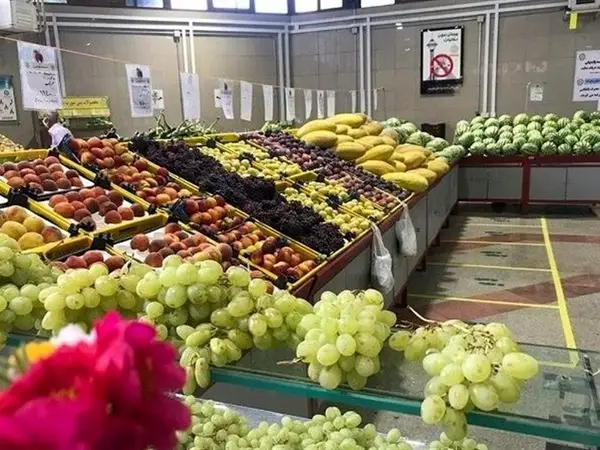A trade representative in Tehran has said various countries have banned imports of Iranian fruits and vegetables due to mold or high pesticide residues.
Mostafa Daraeinejad the head of Iran’s fruit and vegetables association told the Iranian Labour News Agency (ILNA) Friday that India, Russia, Uzbekistan, the United Arab Emirates, Oman, Qatar and others no longer accepted some certificates issued by Iran's agricultural organizations and demanded their own standards be met.
Iran exported $6.5 billion in agricultural products last year. It is among the top ten producers of more than two dozen fruits and vegetables, including saffron, apples, citrus fruit, watermelons and other melons, pomegranates, dates, pistachios, and walnuts.
Daraeinejad said India was refusing import permits for Iranian kiwi after finding it did not meet safety standards. Iran is seventh in world kiwi production, and the main producing region exported nearly 60,000 metric tons, worth $95 million in 2018.
Daraeinejad warned that Iran faced the threat of losing agricultural markets if the ministry of agriculture did not take immediate action to raise standards. He said the matter should also concern domestic consumers as "Iranians don't deserve to ingest nitrates and other pesticide residues…”
In November Uzbekistan turned down several thousand tons of Iranian and Pakistani potatoes due to high levels of pesticide. Qatari importers in November returned to Iran nearly 588 date palms, worth $136,000, imported for lining streets in preparation for the 2022 soccer World Cup.
A few weeks ago, Russia banned imports of some Iranian agricultural products. According to Reza Nourani, chairman of the National Association of Agricultural Producers, a large shipment of peppers was rejected because certificates on pesticide-residue levels were lacking. The Mashregh News website claimed December 1, that “the Israeli lobby” in Russia was behind the move in order to eliminate market competition for Israeli peppers.
According to Iranian Customs Organization, Iran last year exported $22 million of peppers to Russia, which after the imposition of US ‘maximum pressure’ sanctions in 2018 became one of the major destinations for Iran's fruit and vegetable exports. Agricultural products make up more than 80 percent of Iran's exports to Russia.
Although Iran produces a wide variety of agricultural products, the sector has been battling with serious drought and inadequate water supplies for years. At the same time, environmentalists argued that cultivation of watermelonsand cucumbers, two of Iran's major fruit and vegetable exports, should be banned in most areas as producing one kilo of watermelon requires on average 300 liters of water. Producing chicken, rice and bread all require even more water.
